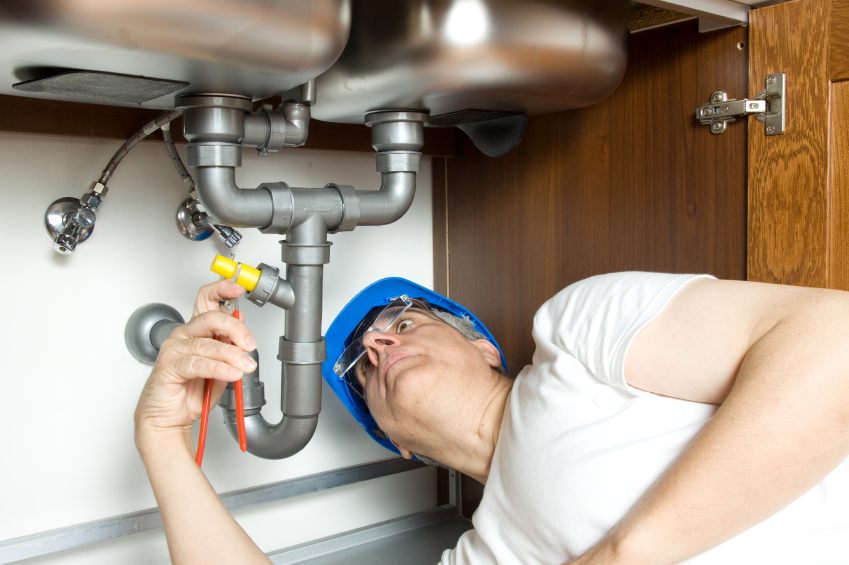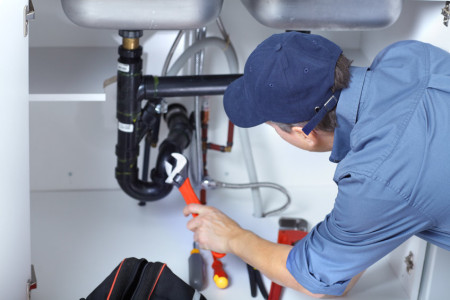Quick Solutions for Plumbing Emergencies: Essential Steps to Take Until Support Arrives
Quick Solutions for Plumbing Emergencies: Essential Steps to Take Until Support Arrives
Blog Article
The article on the next paragraphs about Plumbing Emergencies: Tips on What To Do Before is unquestionably interesting. Read it for your own benefit and see what you think of it.

Pipes emergencies can strike any time, causing anxiety and possible damages to your home. Whether it's a burst pipe, a clogged up drain, or a leaky tap, knowing just how to manage the circumstance until a specialist plumbing professional shows up can save you from more issues. This short article gives vital emergency situation pipes suggestions to aid you alleviate damage and reclaim control during a plumbing situation.
Turn Off the Water Supply
The initial step in any kind of plumbing emergency situation is to shut down the water system. For localized concerns, such as a dripping faucet or toilet, switch off the shutoff near the fixture. When it comes to a major leak or ruptured pipeline, find your home's primary water shut-off valve and turn it off immediately. Knowing the area of these shutoffs in advance can save important time throughout an emergency situation.
Address Little Leaks with Temporary Solutions
Little leaks can rapidly become substantial troubles if left untreated. Utilize these temporary solutions up until expert help gets here:
While these repairs aren't long-term, they can help minimize water loss and damages.
Unclog Drains Pipes Safely
A blocked drainpipe can be an aggravating and messy issue. Below's exactly how to tackle it:
If these techniques don't function, stay clear of utilizing extreme force, as it might aggravate the obstruction.
Manage Overflowing Toilets
An overruning commode can trigger prompt turmoil. Right here's what you should do:
Shut Off Your Hot Water Heater
In certain emergency situations, such as a burst pipeline, it's a good idea to shut down your water heater. This prevents getting too hot or damage to the device when water stops moving. Turn off the power supply to the water heater (electrical or gas) and let it cool off to avoid prospective hazards.
Briefly Stop a Burst Pipeline
A burst pipeline can lead to substantial water damage in minutes. To minimize the problem:
Call a specialist plumber right away to attend to the problem permanently.
Deal With Frozen Water Lines Very Carefully
In cooler environments, icy pipelines are an usual emergency situation. If you believe an icy pipeline:
Stop More Damages
Taking fast activity to decrease damages can save you time and money in the long run. Here's how:
. Have an Emergency Plumbing Kit
Prepare a basic pipes emergency situation package to manage small problems properly. Your package must include:
Having these tools on hand can make a substantial distinction in your capability to manage emergencies.
Know When to Call a Specialist.
While quick fixes can aid briefly, certain plumbing concerns need immediate professional focus. Call a plumbing professional if:.
Promptly calling a professional makes sure the issue is solved correctly and stops further problems.
Final thought.
Pipes emergencies can be frustrating, but with the best understanding and tools, you can handle the scenario effectively up until aid arrives. By shutting off the water, dealing with tiny leaks, and using short-term repairs, you can lessen damages and maintain your home safe. Bear in mind, these tips are temporary services; always seek advice from a certified plumbing technician to manage the origin of the trouble. Prep work and fast thinking are your best allies in any kind of plumbing emergency situation.
8 Helpful Tips for Managing Plumbing Emergencies at Home
If your plumbing system hasn’t failed once, wait for it because almost everyone has a story to tell. Sometimes, it could be simple emergencies such as a leaking pipe, a blocked cistern, or even a big burst pipe. In situations like this, you need to have some handy tips to save you some money and from possible damages.
Take care of minor issues early.
Sometimes, you could have avoided an emergency by taking proactive measures while it was still early. Some major plumbing emergencies can be a result of an ignored minor issue. We recommend that you have items like plumbing tapes and other related items. A plumbing tape can allow you to manage minor leaks before the plumber arrives.
Cut off the water supply.
This tip is essential in almost any type of leakage problem. For problems like minor leakages in the toilet or kitchen, turn off the supply that takes water to the affected pipes. If the leakage is a major pipe, you must shut off the supply valve to the entire building. This will help you avoid flooding your home and neighbors if you share a flat.
Know your plumbing system
Folks typically move into a new apartment without understanding the water supply around the building. This can prove disastrous if a water emergency arises and the plumber is far away. The previous tip will prove useless if you don’t practice this one. More importantly, know where your water shut-off valve is located – you’ll need that knowledge to prevent potential home floods.
Have some common handy tools
There are lots of plumbing emergencies that you can handle without hiring a plumber. That’s why you must keep some tools available always. Some tools that you can use to fix simple plumbing emergencies easily include plumbing tapes, screwdrivers, thread seal tapes, plungers, pliers, tape measures, and rubber gloves.
Insulate your pipes from cold
You’ll save yourself from many plumbing expenses if you protect your water pipes from the cold. This is because of the harmful effects that cold weather can have on your pipes. During winter, your pipes can burst from being overly expected to freezing temperatures. So, make sure insulators are there to keep the pipes working correctly.
Avoid practices that will clog your toilet.
Many people indulge in practices that can damage the plumbing system of the entire building. One of these is when they use their toilet to dispose-off garbage. They flush all kinds of things, such as paper towels, bandages, hairs, female sanitary products, etc., down the toilet. This will block your toilet in the long run, incurring unnecessary expenditures. Dump such waste in the trash instead.
Check your dials regularly.
Sometimes, there could be leakages in your home without noticing them in time. So, constantly monitor your water meter dial. If the dial is reading when there is nobody using water, this is an indicator that there is leaking. Check for leaks immediately. Call a plumber as soon as possible if you can’t find any.
https://www.constructionplacements.com/8-helpful-tips-for-managing-plumbing-emergencies-at-home/

We were shown that article about Plumbing Emergencies: Tips on What To Do Before through a pal on our other web blog. Appreciated our blog entry? Please quickly share it. Help somebody else check it out. We value your readership.
Click Here Report this page